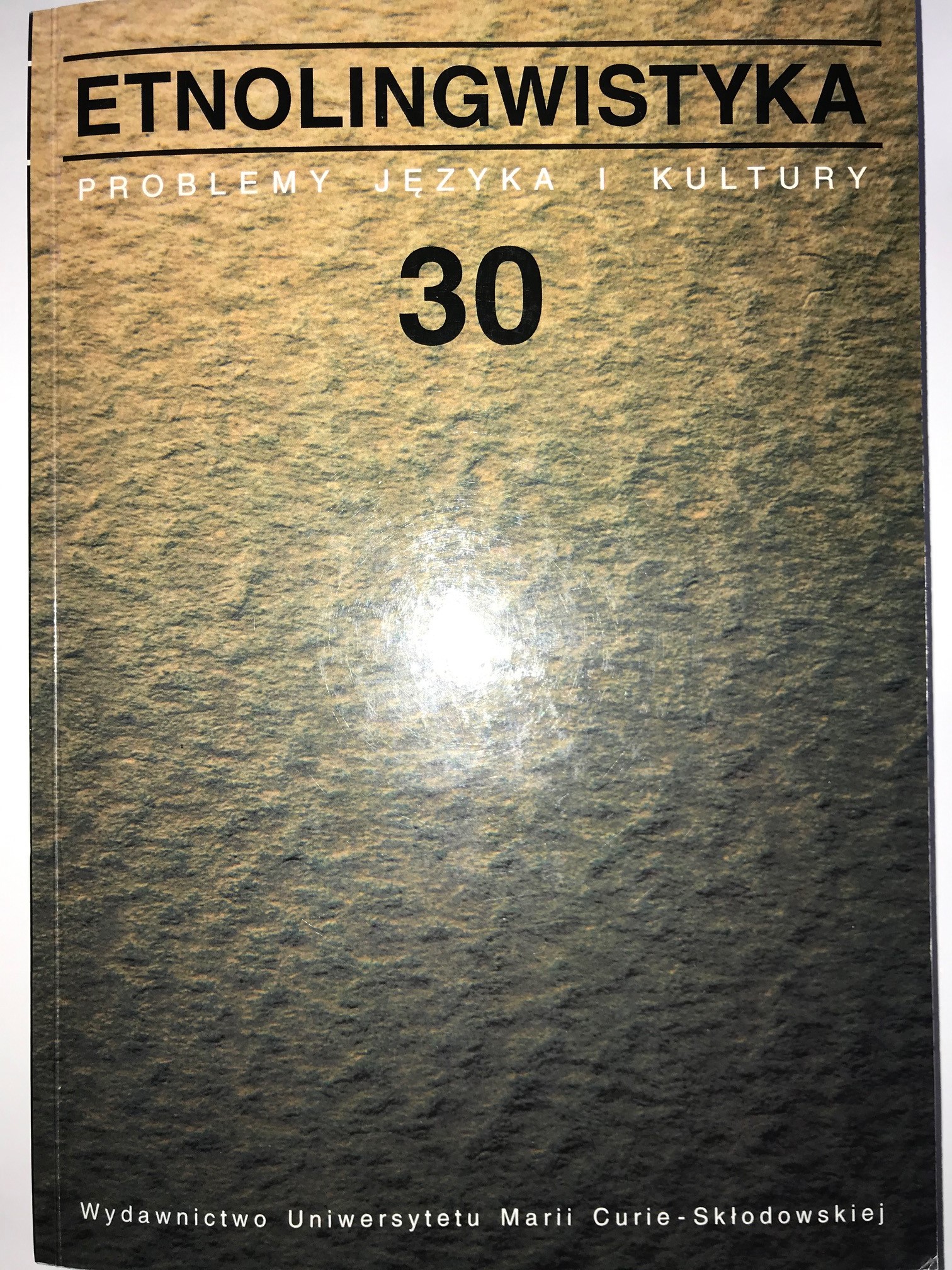Lubelska etnolingwistyka kognitywna a anglojęzyczna lingwistyka kulturowa. Wybrane problemy
Cognitive ethnolinguistics from Lublin and cultural linguistics in the English-speaking context. Selected issues
Author(s): Adam GłazSubject(s): Language and Literature Studies
Published by: Wydawnictwo Naukowe Uniwersytetu Marii Curie-Sklodowskiej
Keywords: Lublin cognitive ethnolinguistics; cultural linguistics in English; Cultural Linguistics; linguistic worldview; translation and reconstruction of linguistic worldview
Summary/Abstract: Basic sources of inspiration in the emergence of Lublin cognitive ethnolinguistics (LCE) include: research on the language of folklore (directly inspired by Maria Renata Mayenowa, indirectly by Roman Jakobson and Piotr Bogatyryev),Russian ethnolinguistics (Nikita Tolstoy) and semiotics (Vyacheslav Ivanow and Vladimir Toporov), 18th- and 19th-c. German thought (Johann Herder, Wilhelm von Humboldt), the American idea, largely deriving from the German context, of linguistic relativity (Franz Boas, Edward Sapir, Benjamin Whorf), plus a major role that has been played by the work of Bronislaw Malinowski and, especially, Anna Wierzbicka. Inspirations from cognitive linguistics have enriched Lublin ethnolinguistics with the cognitive dimension. After several decades of its existence, LCE may plausibly be compared with cultural linguistics as it is practised by authors writing in English, especially with a characteristic model within that tradition known as Cultural Linguistics (capitalised), associated with the names of Gary Palmer or the model’s main advocate, Farzad Sharifian. It is also instructive to consider, in this context, specific issues and challenges that LCE must face, as has been pointed out by Western scholars (not necessarily working under the rubric of Cultural Linguistics). Two such problems are discussed here: the role of translation in the reconstruction of linguistic worldview (raised by James Underhill) and the notion of linguistic worldview as such, as it is understood in LCE and Cultural Linguistics.
Journal: Etnolingwistyka. Problemy Języka I Kultury
- Issue Year: 30/2018
- Issue No: 30
- Page Range: 231-257
- Page Count: 27
- Language: Polish

